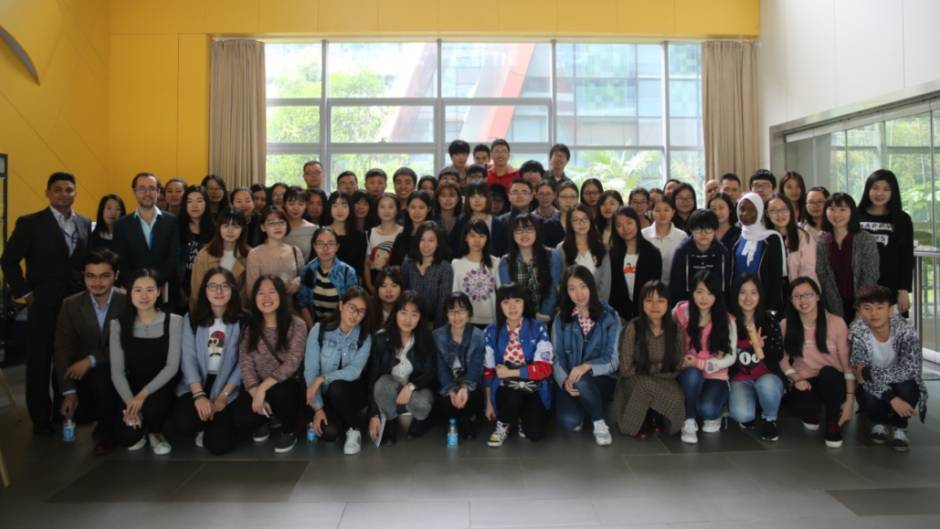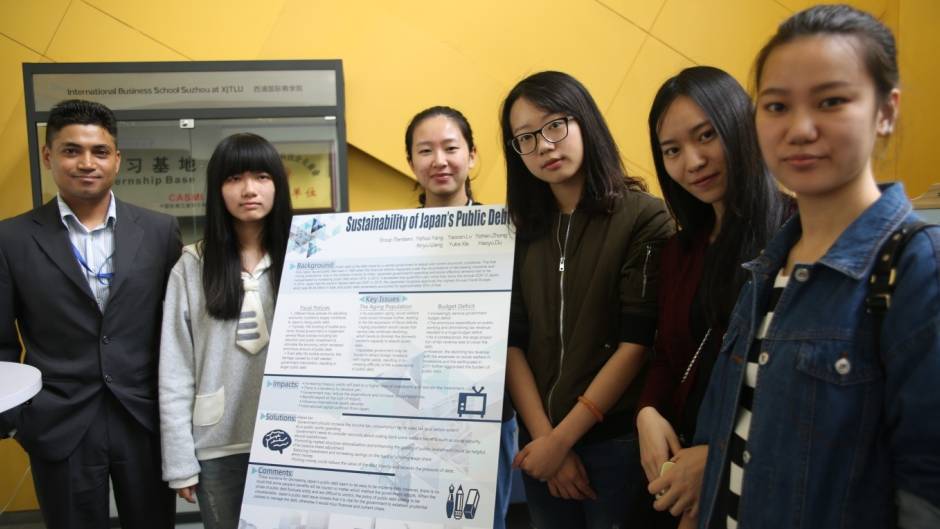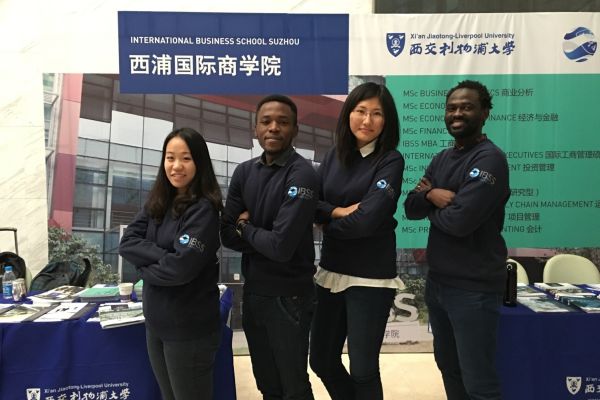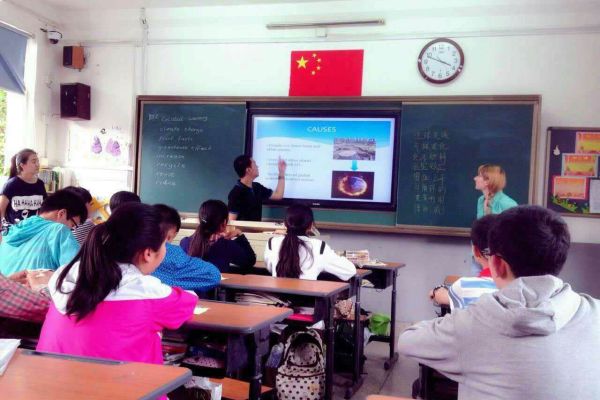31 May 2016
A poster event was held in International Business School Suzhou at Xi’an Jiaotong-Liverpool University as part of an undergraduate module on macroeconomics.

The annual event saw 14 groups of students create posters based on a topic from a list given to them by their lecturer Dr Nimesh Salike. The topics were chosen to give students the opportunity to apply what they had learnt in the classroom to real-world problems and included:
- China as a currency manipulator
- China US Trade dispute
- Housing bubble in China
- Internationalisation of RMB
- Sustainability of Chinese growth
- Europe's public debt
- Financial crisis and its effects in Asia
- Income inequality in China
- Environmental issues in China
- Service industry in China
- Hyperinflation in Zimbabwe
- Sustainability of Japan's public debt
- Aspects of Petroleum price
- Prospects of China (Shanghai) Free Trade Zone
Staff from IBSS were invited to the display to support students’ work and share their comments with students.
Associate professor Birgit Suberg, who joined the event as a visitor, was impressed by the work of the students: “This is a great idea to ask students to present their thoughts and outcome of research and discussion on a well-designed poster,” she said. “This assignment allows students to transfer knowledge into practical issues in our life today, provides them with an opportunity to relate economic issues to their daily life, develop critical thinking, explore creative potential and develop debating skills.”
Yuke Xie, a Year Three BSc Economics student at IBSS, said her group had chosen the topic of ‘sustainability of Japan’s public debt’ to find out why Japanese public debt is so large and how it rose above 200 percent of Japan’s GDP.
“We wanted to apply the economic knowledge we had learned to the issues we identified and find solutions for those issues,” she said. “Our group worked as one and we discussed our findings and research collaboratively. We discovered many new ideas and the group assignment provided us an opportunity to build our team work skills and develop our critical thinking.”

Dr Nimesh Salike, head of the economics division in IBSS, said projects like this were an important way to allow students to gain experience in both research and real world practices, as well as build their soft skills through effectively working in a team with randomly selected members.
“Economics lectures often include lots of equations, graphs and descriptions to explain economic phenomena,” he said. “Although they are interesting to learn inside the classroom, the students find difficulty in understanding how and why those equations and graphs are relevant to the real world. This project bridges the gap on their book knowledge with the practicality of the policies in the real world.”
He added that students used journal articles, books, magazines and news clips to conduct their research as well as went on field visits to banks, firms and ministries, meeting with business people and the general public.
31 May 2016
RELATED NEWS

IBSS postgraduate students form ambassadors team
Eight students from International Business School Suzhou masters programmes have formed the first IBSS student ambassadors team. They will be involved...
Learn more

Presentations for summer 2015 student volunteer projects
A poster exhibition and prize-giving for summer projects by Xi’an Jiaotong-Liverpool University student volunteers was held in the Central Building on the...
Learn more








